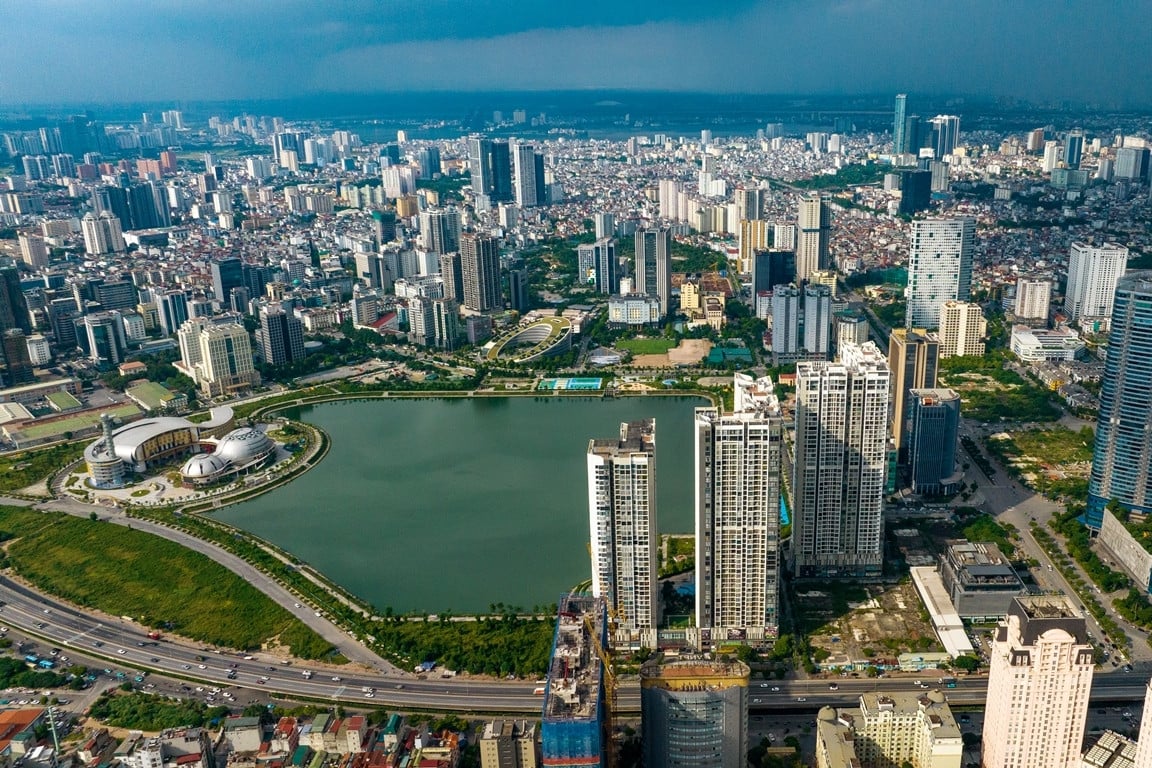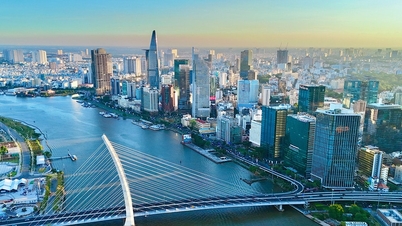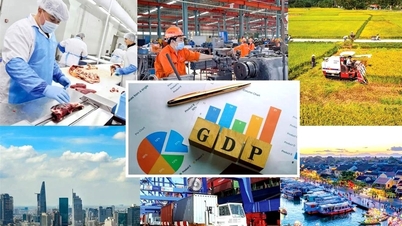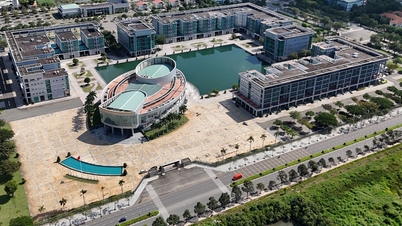Driving force for private economic development
The country currently has more than 940,000 private enterprises, about 5 million individual business households, with a workforce of tens of millions of people. This sector contributes about 50% of GDP, 30% of the budget and more than 80% of jobs nationwide.
Speaking at the seminar “Resolution 68-NQ/TW: Driving force for the development of Vietnam’s private economy” on the afternoon of August 15, Associate Professor Dr. Nguyen Thanh Loi, Editor-in-Chief of the Economic & Urban Newspaper, emphasized: If given more opportunities and an equal and favorable business environment, the private economic sector will make even greater contributions to the country’s development.
National Assembly Deputy Phan Duc Hieu, member of the National Assembly's Economic and Financial Committee , assessed that the birth of Resolution 68 has changed the quality when previous institutional obstacles have been removed at three points. That is: minimizing inconvenience, increasing protection, reducing risks and freeing up resources.
The core spirit of Resolution 68 is not simply to remove barriers in the business environment, but importantly to create fundamental changes in legislative thinking and law enforcement.
However, according to Mr. Phan Duc Hieu, if Resolution 68 is considered the "third milestone" in the process of private economic development, the decisive factor will lie in the implementation stage.
He cited: "The biggest challenge now is that the amount of work that needs to be institutionalized is still very large. For example, the 30% reduction in business conditions is currently in the review stage and will continue to be reduced in the coming time. Or there are things that can be done immediately without even needing to amend the law."

Meanwhile, Associate Professor Dr. Tran Dinh Thien said that the Central Government assigned the private economy the mission of being the most important driving force, so it is necessary to find every way for them to carry out that mission. According to him, that is the state's job.
“The driving force for private economic development is the key to whether Vietnam can catch up with the world or not, not foreign investment,” Mr. Thien emphasized.
Therefore, authorities at all levels must make efforts to support the private economy to play its "full role".
Hanoi has many advantages for private enterprise development.
Prof. Dr. Hoang Van Cuong, Vice Chairman of the State Council of Professors, member of the 15th National Assembly, member of the Prime Minister's Policy Advisory Council, assessed that Hanoi has many advantages for private enterprises to develop, such as geopolitical and diplomatic advantages. This is also the development center of the entire northern region.
Besides, Hanoi market is the second largest in the country, with a population of over 10 million people, most of whom are high-income earners. The city is also home to the best human resources, science and technology resources... - a huge potential to promote private economic development.
However, Prof. Dr. Hoang Van Cuong noted that the private economy in Hanoi should not only pursue quantity but also focus on attracting and developing quality. Private enterprises must be pioneers in applying and transferring science and technology.
Resolution 68 creates a new “playground”, helping the private economy not only develop independently but also have the opportunity to participate in important State projects. In the city, there are many potential projects for businesses to exploit.
Mr. Truong Viet Dung, Vice Chairman of Hanoi People's Committee, said that Hanoi has had many solutions to support the business community such as: drastically cutting administrative procedures; supplementing and perfecting planning; and being open, transparent, and equal in calling for investment in socio-economic development projects, infrastructure, and energy.
At the same time, promote three strategic breakthroughs including more open institutions, more transparent infrastructure, and human resources that better meet new development requirements; and at the same time, strengthen dialogue and listen to businesses.
The city also issued more than 80 policies to support small and medium-sized enterprises in the 2026-2030 period, focusing on governance, production infrastructure, support for the innovative startup ecosystem, tax incentives and financial support for businesses in key science and technology fields.
Hanoi aims to have about 230,000 active enterprises by the end of 2025, reaching 27 enterprises/1,000 people; the private economic sector contributes 50-55% of GRDP. With the growth scenario and the target assigned by the Prime Minister, GRDP in 2025 is estimated to reach about 63.5 billion USD (up 8.5%).
Thus, the private sector's contribution is estimated at 31.8-35 billion USD. At the same time, this sector strives to account for 45-50% of total budget revenue and create jobs for 55-60% of the workforce.

Source: https://vietnamnet.vn/pgs-ts-tran-dinh-thien-chi-diem-mau-chot-de-viet-nam-duoi-kip-the-gioi-2432551.html



![[Photo] Prime Minister Pham Minh Chinh attends the World Congress of the International Federation of Freight Forwarders and Transport Associations - FIATA](https://vphoto.vietnam.vn/thumb/1200x675/vietnam/resource/IMAGE/2025/10/08/1759936077106_dsc-0434-jpg.webp)



![[Photo] Prime Minister Pham Minh Chinh inspects and directs the work of overcoming the consequences of floods after the storm in Thai Nguyen](https://vphoto.vietnam.vn/thumb/1200x675/vietnam/resource/IMAGE/2025/10/08/1759930075451_dsc-9441-jpg.webp)




























































































Comment (0)